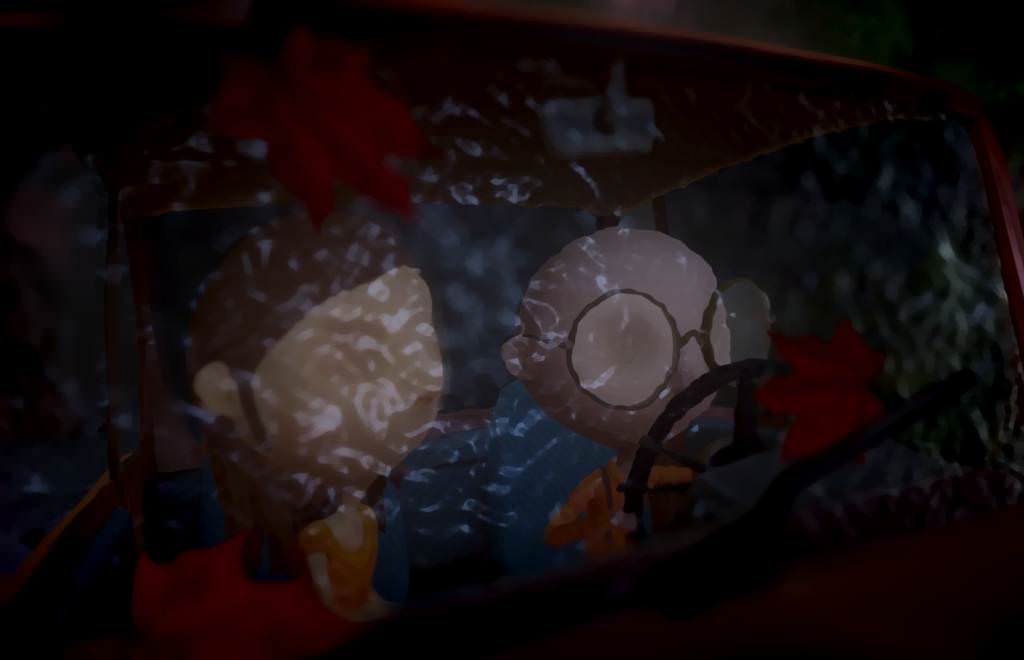Combining artwork inspired by impressionist painters like Monet and featuring the music of the award-winning progressive rock musician and producer Steven Wilson (founder and lead singer, guitarist and songwriter of Porcupine Tree), Last Day of June is an unusual game that’s hoping to reach an unusual audience—people who don’t like video games.
Releasing August 31 for PlayStation 4 and Steam, Last Day of June is being developed by Italian studio Ovosonico in collaboration with writer, director and animator Jess Cope, who worked on Frankenweenie. The game is also directed by Massimo Guarini, who is best known for the over-the-top shooter Shadows of the Damned and the cult favorite Murasaki Baby, where players had to safely lead a little girl through a strange Tim Burton-esque world of emotions.

Last Day of June takes players on a different kind of emotional adventure. In it, they’re introduced to a couple named Carl and June.
June loses her life in a car accident and Carl, overcome with grief, obsesses over that day, wondering what he could have done differently. That leads to a story about dealing with the past using Groundhog’s Day-like time travel gameplay, where players alter details in the hopes of saving a loved one.
The game is inspired by Wilson’s song “Drive Home,” and what makes the partnership with the musician especially fitting is the fact that Wilson originally told Ovosonico that he didn’t like games, but then he had a change of heart after being shown an early scene from the game.
Mattia Traverso, the lead game designer at Ovosonico, told AListDaily that Wilson said, “I didn’t know it was possible to make this with video games.” From that moment on, Wilson was on board.
The game was developed as an effort to bring gaming to non-gamers. Traverso explained how it’s normal for people to say that they don’t like video games, but they would probably get funny looks if they were to say that they didn’t like music or movies, given the multitude of genres.
“We were inspired by this,” said Traverso. “Why isn’t there a genre for everyone in video games? We think the problem is that there aren’t enough diverse stories or themes for a broader audience to relate to. There’s nothing wrong with traditional games like Overwatch, but it’s good to have a choice. So, what we tried to do with Last Day of June is base it on a feeling we all have—the feeling of wanting to go back into the past to change something.”
What’s trickier is figuring out how to engage with a broader non-gaming audience. While Traverso indicated that they were looking into advertising in locations that non-gamers would regularly visit, he couldn’t get into detail about specific plans. However, Traverso said that “a lot of it will come from letting Wilson help us share his game. We’re totally fine with just getting gamers through gaming publications, but we want to try to reach different people.”
Reaching a broader audience may be a challenge, but having Massimo Guarini direct the game may help win gamers over. What convinced Guarini to make Last Day of June after Shadows of the Damned and Murasaki Baby? “I’d say it’s an evolution [of his work],” said Traverso. “We’ve gone from shooting, to holding a baby by the hand, to a game about regret. But I think both Murasaki Baby and Last Day of June speak to us as people. We’re investigating what it means to be flawed and human, which I guess sounds a bit pretentious, but we believe in the concept. Both games have a melancholy feel to them, which is becoming a kind of signature for our studio. . . . Ovosonico originally started out making a smaller game, but there’s a lot of love in this. If you play Murasaki Baby, you’ll see that there’s definitely a personal touch to it. This game is us trying to evolve as a studio by making a title that reaches more people but, at the same time, it will be found on PlayStation and Steam. That’s quite a bigger challenge than what we were originally looking for.”
That leads to the bigger question of how non-gaming audiences will become aware of the game, considering how both the PlayStation 4 and Steam are gamer-focused platforms.
“Guarini often says that the future will be one where you can press a button on a TV remote and the game will start,” said Traverso. “PS4 and Steam are actually big barriers for people because they’re kind of complex and there are quite a few steps you need to take before you can play a game. So, that’s definitely a complicated question that we don’t really have an answer for, but I think that as we evolve, consoles will become simpler and people will get more access to them. It’s not a problem that we can solve alone, and we need to collaborate with platforms to address it. But on the other hand, I think the more platforms you reach, the easier it is to get access to an audience.”

